#lcmhc
Explore tagged Tumblr posts
Text
shooting this out for anyone with knowledge to answer:
i am seriously considering taking up this program in mental health counseling - thing is, it is mpcac accredited, not cacrep. they have the procedures for getting licensed as a LCMHC in the state, but i'm worried - am i making the right decision?
#lcmhc#lpc#counseling#mental health counseling#cacrep#mpcac#counseling accreditation#career in psychology#therapist
0 notes
Text
Adlerians view...
“Adlerians view most human problems as social in nature, they emphasize relationships within the family as our earliest and, perhaps, our most influential social system.”
Parents are a direct example to their children. Children grow up observing and believing that the values, beliefs and goals that their parents instill, are the right ones, moral ones and will help them grow into productive, superior and stable adults.
However, when a child grows up with a psychopathic parent, can the child prosper and become a valuable member of society?
According to an article by Scott Bonn, Ph.D. in Psychology Today, “psychopaths are unable to form emotional attachments… tend to be aggressive and predatory… view others as objects for their amusement… they lack empathy… often have disarming or even charming personalities. They are manipulative and can easily gain people’s trust. They learn to mimic emotions, despite their inability to actually feel them and will appear normal to unsuspecting people. Psychopaths are often well-educated and hold steady jobs.”
My father was all of these things, smart, charming and seductive, yet aggressive and mean. He appeared normal to the outside world, but behind closed doors, he was emotionally detached and demeaning towards my mother and siblings. He was always putting them down, calling them fat. He would laugh and say “Just kidding, I love you,” and buy a gift to make up for the hurt. Any friend he had was screwed over. He would lie, cheat and steal to get what he wanted by manipulating the system and defrauding his friends and the government.
As a young, naive, child, I looked up to my dad, he was my hero, he could never do wrong or let me down. He loved me, I was Daddy’s little girl. One day all of that changed. I was 10 years old, and my mother and I were watching my older sister play tennis at her high school, I remember it vividly. She took me for a walk and we were next to railroad tracks when she finally spoke. “Shannon, I need to tell you something and you cannot tell your baby brother, can you promise me?... Your father got into trouble and he will have to go away. He walked into a bank and saw a pile of money that wasn’t his and he took it. That was wrong and he got caught. Now daddy has to go away for a bit, but everything will be ok.” I was shocked, caught off guard, my father was going to jail, only bad people go to jail!
Many years later, I would bring this memory up to my mother and she would deny the conversation ever happened, calling me a liar and saying I make stories up. It was very confusing and frustrating, however, I learned in therapy that children can make up stories to understand and interpret a stressful situation. So, did it really happen, who knows… but my father did spend time in jail.
As I matured into my teenage years, I became distant and did not trust people. I found it difficult to make new friends and have real emotional connections. I was shallow and chose a lifestyle that was immoral and chaotic. My behavior and attitude reflected what I observed and perceived growing up,I actually believed that I was supposed to act like this because I was superior.
I started therapy in college when I began getting into trouble and having turmoil with my friends and in my relationships. I felt lost and wanted to have real friendships and be a valuable addition to society. I spent years focusing on my subjective experiences, dissecting the emotional and cognitive impact my father had on me and my resulting choices. I explored the dynamics between my siblings and my place in my family constellation. It took a lot of psychoanalyzing and maturity but I CHOSE to change, I chose to act differently. I altered my perspective and re-trained my thoughts. I practiced empathy and kindness. I learned to face my inferiority complex by raising my energy level and becoming strong-minded.
It was painful to recognize as an adult my father is not a hero. He is not kind and his thinking is abnormal. The things he says are not funny, they are abusive and racist, he is toxic. To be successful in life, a person must surround themselves with the kind of people that they would like to be. Being around good, ethical, honest and sincere people rubs off on a person by helping to influence their behavior. Having relationships and real friendships gives meaning to one’s life.
Corey Gerald. (2015). Theory and Practice of Counseling and Psychotherapy.Cengage Learning.
Bonn, S. (2018, January 18). How to tell a sociopath from a psychopath | Psychology Today. Psychology Today. https://www.psychologytoday.com/us/blog/wicked-deeds/201801/how-tell-sociopath-psychopath
1 note
·
View note
Text
Neil Gaiman survivor Kitty Kendall/"Claire" posts a statement on charity donations (please share!)
278 notes
·
View notes
Text


A statement from Katherine (Kitty) Kendall, LCMHC (also known as "Claire" in the podcasts):
https://www.kkendallcounselor.com/news/tothefriendsofcalliope
In 2020, Neil Gaiman committed to making a “hefty donation” to OurVOICE, the agency where I received counseling services in 2013. It was later discovered that he had not made the donation he promised.
I am not professionally affiliated with this agency, but believe strongly in its mission: to inspire hope and healing while ending sexual violence and human trafficking through education, counseling and advocacy.
If you choose to dedicate your donation to the victims of Neil Gaiman - those who have come forward, those who will, and those who can’t - please dedicate that donation to the name “Calliope.”
I am so in awe of this beautiful statement and this powerful idea.
If every Sandman fan, or every NG fan (or former fan), makes a small donation in Calliope's name, or shares this message to others, it can add up to something incredible.
I continue to be blown away by the powerful beauty of this statement, and by the strength, courage, and resilience of all the survivors.
Kitty Kendall's full statement: https://www.kkendallcounselor.com/news/tothefriendsofcalliope
OurVOICE donation page: https://www.ourvoicenc.org/donate/
🖤
#friends of calliope#the friends of calliope#katherine kendall#Kitty Kendall#calliope sandman#calliope the sandman#the sandman#sandman#neil gaiman#cw neil gaiman#neil gaiman allegations#cw sa mention#ourvoice
58 notes
·
View notes
Text
To The Friends Of Calliope
A post from Katherine (Kitty) Kendall, LCMHC, where she encourages people to donate to OurVOICE in the name of "Calliope" to honor survivors hurt by NG:
#be kind#help others#please donate#neil gaiman#neil gaimen allegations#good omens fandom#good omens#Ineffable grief
11 notes
·
View notes
Text
"Claire", from the Tortoise Media broadcast, is asking people to donate to OurVOICE, which is where Neil Gaiman said he would donate money to, and then didn't. This organization provides counseling services for abuse victims. Don't forget to dedicate your donation to "Calliope".
Those familiar with Gaimans work will recognize why.
4 notes
·
View notes
Text
"Healing is not becoming the best version of yourself, healing is letting the worst version of yourself be loved." — Kobe Campbell, LCMHC
6 notes
·
View notes
Text
Meet Michelle Daley: Playful, Powerful Therapy for Children
Michelle Daley, LCMHC and Navy veteran, specializes in play therapy and EMDR for children and teens facing trauma, ADHD, autism, and parent-child challenges.

0 notes
Text
Cultural Autism Studies at Yale (CASY, ethnography project led by Dr. Dawn Prince-Hughes) is delighted to welcome Candice Christiansen, LCMHC on Monday, January 13, 2-3 p.m. EST (12-1 p.m. MST). The title of her presentation is “Autism and Sensory Sex: Enjoying Pleasure by Connecting to Our Sensory Experience.” There is no cost to attend, and international participants are invited. RSVP by joining our FREE meetup group https://tinyurl.com/ypaknryr
Candice Christiansen LCMHC is an adult-diagnosed cisgender Autistic female, licensed clinician, Autism specialist, neuro-inclusive consultant, author, and presenter with over 20 years of experience providing therapy, coaching, consultation, and advocacy to highly traumatized neurologically different adults. Candice is a national and international presenter on topics related to providing accurate Neuro-Inclusive therapy and support to Autistic adults struggling with intimacy and out of control sexual behavior. Her Neuro-Inclusive healing center, Namasté Center for Healing is internationally known for providing neurologically different adults and mixed neurotype couples with intensive therapy, coaching and consultation related to a variety of sex and intimacy issues. In 2023, Candice authored an e-book titled, Understanding Your Sexual Sensory Profile. That same year, 2023, Candice and co-authored a neuro-affirming Autism Screening tool for Autistic females and non-binary individuals. During 2023, she also co-authored a chapter in the book Altogether Us titled, A Neuro-Inclusive Approach to IFS for Therapists Working with Neurodifferent Individuals. In 2024, Candice completed her psychedelic assisted therapy certification through the California Institute of Integral Studies and published the workbook: Compassionate KAP: Creating Neuro-Affirmative “Set and Settings” for Autistic Adults Participating in Ketamine-Assisted Psychotherapy (KAP). Candice is the host of Fabulously Candice: The Sexiest Podcast about Neurodivergence where she has interviewed a variety of neurodifferent adults, mixed neurotype couples, as well as advocates, and allies about neurodivergence and all things sex, intimacy and relationship. Candice lives and loves her home in Utah with her BIPOC hubby Chris and their sweet fur baby Gigi.
More information on Candice’s work is available online:
https://www.candicechristiansen.com | https://www.namasteadvice.com | https://autismandintimacypodcast.com
About Cultural Autism Studies at Yale (CASY, the ethnography project led by Dr. Dawn Prince-Hughes). An 'ethnography' is an exploration of how a group of people express themselves in a cultural way. Autistic people have a growing kind of culture, and each autistic experience is a vital part of it. Dr. Dawn Prince-Hughes is an anthropologist, ethnographer, primatologist, and author who is autistic. Join her for an exploration of the importance of autistic self-expression and the culture that grows from it. Those who wish to share their content are free to do so on our private Facebook groups (see below), organically contributing to a growing autistic culture.
Links to online events will also be shared on these private Facebook groups: CASY Cultural Autism Studies at Yale (recommended for autistic adults) http://tinyurl.com/4ckbyut7 and SOCIAL CONNECTIVITY FOR AUTISM (recommended for allies, professionals, and family members) http://tinyurl.com/mrxnxmnc
CREDITS: The preparation of this material was financed under an agreement with the Connecticut Council on Developmental Disabilities (CTCDD). CASY Sparks membership and events are free. CASY Sparks is sponsored in part by The Daniel Jordan Fiddle Foundation Adult Autism Research Fund, a generous gift from the Rosen family, and the research of Dr. Roger Jou https://www.youtube.com/c/DrRogerJou

0 notes
Text
Week 4 : Reality TV show and the “ordinary celebrities”
When it comes to TV shows, reality shows have long been considered a "weird" and "obscure" form of entertainment. With its first making an appearance in the 90s as a phenomenon, broadcasters have been at odds regarding the primary purpose of the medium in terms of providing entertainment.
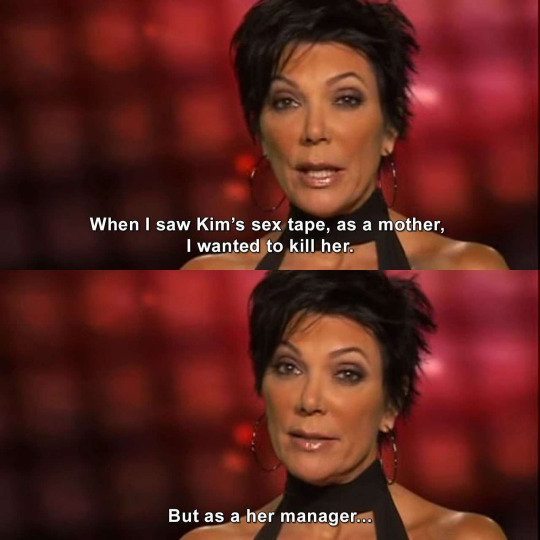
Reality television presents viewers with a chance to break away from the routine of their own lives, escape the challenges and burdens of their own situations, and find avenues for emotional catharsis. As we immerse ourselves in the trials and conflicts of others while watching, we can momentarily set aside our own circumstances. It's common to experience thoughts like, "Well, my life isn't so bad after all," or even ponder, "Even someone as glamorous and affluent as so-and-so has their own struggles."
Beyond its genuine portrayal of real-life situations, a huge factor in the surge of reality television was the inclusion of interactive components. These elements engage a live audience or viewers at home, directly involving them in the program as respondents or judges of the activities showcased on the show creating a “connection” (Hill, 2005, p. 21). And thus this creates a new interest in the reality show genre featuring famous artists in general. For instance, psychologist María Cartagena, as cited by Aceprensa, highlights this : "The primary motivation for our viewership of reality TV likely lies in our strong identification with, interest in, or empathy for one participant or another." When reality shows unveil the daily lives of individuals, audiences can place themselves in the depicted scenarios, contemplating their own responses and pondering the best course of action in such circumstances.
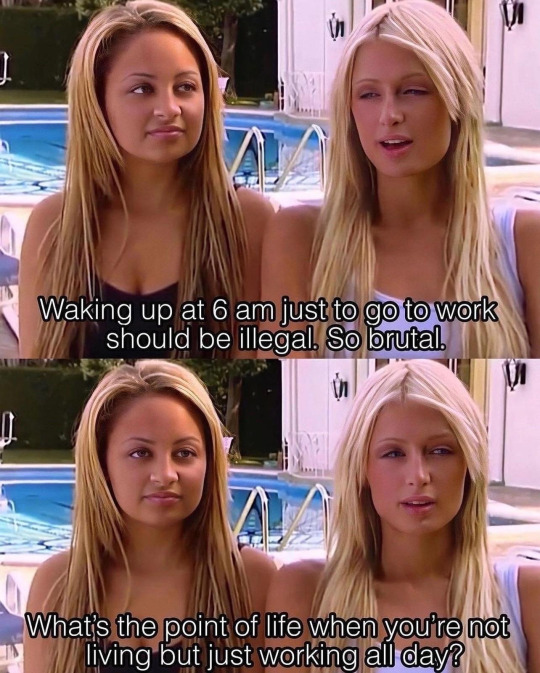
Shows like “Keeping up with the Kardashians”, “The Simple Life”, “Nice To Meet You”, etc are the best examples when it comes to “ordinary celebrities”. With the majority of personalities featured on these shows being either established celebrities or well-known socialites, viewers often perceive them as “stars”. As the television screen showcases glimpses into their daily lives, it fuels our intrigue and fascination, elevating our curiosity to new heights. For example, viewers who like watching Kourtney and Kim Kardashian spar might have sisters of their own. Therefore, they can feel understood or even be able to navigate their own relationships after benefiting from being a spectator by watching two people in the same family dynamic as them, or at least one that is comparable. Even if you might not have any similarities with Georgina Rodríguez, the main character in "I Am Georgina," it's possible that observing her day-to-day activities will teach viewers something about the human condition, allow them to empathize with her, and put them in her shoes.
References
LCMHC, AGM, MA 2021, ‘The Psychology of Reality TV’, Medium, viewed <https://medium.com/@wellwaycounseling/the-psychology-of-reality-tv-434144a76088>.
Aceprensa 2023, ‘Beyond the gossip: Why reality TV is so popular’, Aceprensa, viewed <https://www.aceprensa.com/english/beyond-the-gossip-why-reality-tv-is-so-popular/>.
Hill, A 2005, Reality Tv : Audiences and Popular Factual Television, Routledge, London ; Nueva York, p. 21.
0 notes
Text
Ethical Issues in Therapy
When reading about “ethical issues related to multiple relationships in counseling practice,” I can't help but look back on my own childhood.
It is unethical for a therapist to accept the treatment of a child who they have a personal relationship with the parents. Informed consent is necessary or it becomes an ethical matter. Confidentiality is imperative when working with clients and making them feel safe. If a client does not feel safe enough to disclose information to the therapist, there is blatantly no therapist and client centered relationship. The therapist has a moral obligation to the client to refer them out to another therapist.
At 14 years old, I was a Baker Acted. I woke up in the hospital with my family by my side, we were all understandably scared and angry. I was transferred from the emergency room to SandyPines Residential Treatment Center in Jupiter, FL. The doctor that treated me had multiple relationships with myself and my family. Prior to my stay in the treatment center, our families would spend weekends together, go fishing and deep sea scuba diving. This personal relationship compromised our therapist - client relationship and devalued anything the therapist might have tried to implement.
This multiple relationship was harmful and unethical. Since the therapist was a family friend and close with my parents, she was the last person I wanted to confide in. It’s unfortunate, because if that therapist acted ethically at that time, I may have had a better chance of being diagnosed earlier and not suffering for almost 25 more years with undiagnosed mental illness. I may have utilized the treatment instead of rebelled against it.
What do you think of a parent using their friend as a therapist to intervene with their “disturbed” child?
0 notes
Text
Undergrad professor Johnathan Doe, PhD: You will refer to me only as professor Doe or Doctor Doe. If you say anything else I will not respond to you.
Grad professor Edward James, Phd, NCC, LCMHCS, NCSC: Hi, I'm Ed.
1 note
·
View note
Text
Vermont’s Best Therapy Center for Children and Adults
Expert Neurofeedback Therapy
Neurofeedback therapy, offered by Dr. David Helfand Psyd at LifeWise PLLC, is a non-invasive tool to retrain the brain. Similar to physical therapy for the brain, neurofeedback therapy enhances control, flexibility, and resilience. Scientifically proven to assist with various symptoms and medical issues, neurofeedback can now be done remotely from home. It targets issues like executive functioning, anxiety, panic attacks, sleep disorders, ADHD, and peak performance.
An additional modality, NeuroMeditation combines meditation with neurofeedback, optimizing results. Train your brain, boost focus, and awaken higher functioning areas with this innovative therapy.
Advanced Brain Mapping
qEEG Brain Mapping Expert Analysis provides a multipoint inspection of your brain. Think of it like a musical tuner for your brain. A Brain Map (or qEEG) measures brainwaves, revealing areas needing support and those functioning well. This information aids in improving relationships, career goals, and overall life fulfillment. The appointment takes about an hour, with immediate recommendations available after the test, and a full report ready in about four to six weeks. The test monitors brainwaves without sending signals to the brain.
Play Therapy for Kids: Understanding and Healing Through Play
In child counseling, identifying the root cause of issues is crucial. Child Play Therapy, offered by Anna Helfand LCMHC, child behavioral therapist at LifeWise, focuses on children’s mental and emotional well-being through play. Here’s a concise overview:
Healthy Development: Observing a child’s play reveals insights into their developmental progress. Themes common to specific age groups help assess growth.
Grief Work: Children process loss differently. Providing a safe space for emotional expression aids in healthy coping and future development.
Depression: Play allows children to explore and process emotions indirectly, making it a valuable tool for addressing sadness.
Anxiety: Signs of anxiety emerge in play scenarios. Using play metaphorically helps teach healthier stress management.
Anna Helfand LCMHC, an expert play therapist, combines gentleness with firm support. Her extensive training in family and child counseling ensures a safe and transformative experience for families in Vermont and the surrounding communities.

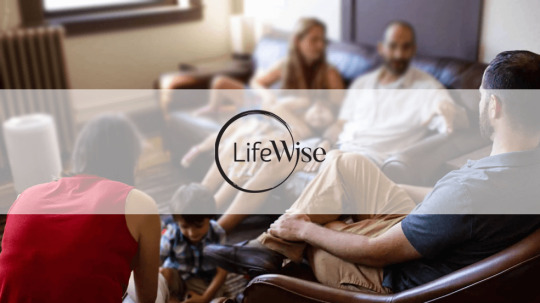
LifeWise, PLLC 190 Eastern Ave - Suite 206 Saint Johnsbury, VT 05819 [email protected] (802) 232-4468 www.lifewisevt.com
#couples counseling#neurofeedback therapy#marriage retreat#intensive couples therapy retreats#family therapy#child play therapy
1 note
·
View note
Text
Megan Simpson MS, LCMHC, BCN
New Post has been published on https://solsticeeast.com/dvteam/megan-simpson-ms-lcmhc-bcn/
Megan Simpson MS, LCMHC, BCN
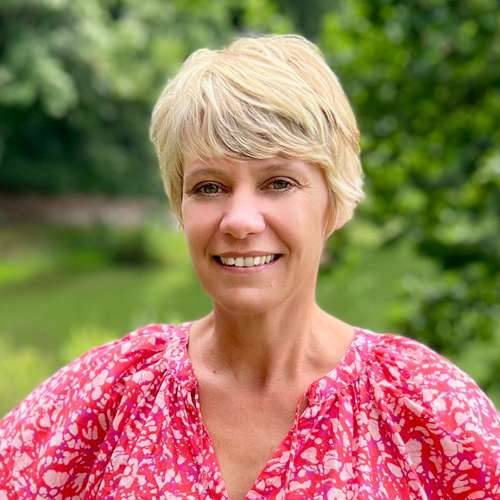
0 notes
Note
Idk if this is something you feel able to give advice on, but Seeing Wolves Where there are No Wolves is a big comfort to bc I know I too need help & its good to know that it's out there, but I don't know how to start. Like how the hell do you choose a therapist?! I google and still dont get the difference between lpc vs psyd, let alone what questions to ask or how to tell if they're a good fit. Feel free to say pass, but if you have tips I would so greatly appreciate it. thanks and sending love
hello, anon!
im actually able to help with this! im good at finding counselors! (and dentists!)
so, there are a couple of ways to go about this, but the truth of the matter is that if you've never been to therapy, or you're new to an area and are searching for a counselor, you may have to shop around a bit before you find the right fit. This can be emotionally taxing, so seeking out the right one will take some refining.
Acronyms To Know:
MSW: Master of Social Work
M.Ed: Master of Education / M.S.Ed: Master of Science in Education
M.S or M.A: Master of Science and Master of Arts, respectively.
LPC: Licensed Professional Counselor
LMHC: Licensed Mental Health Counselor
LCPC: Licensed Clinical Professional Counselor
LPCC / LCMHC: Licensed Professional Clinical Counselor of Mental Health / Licensed Clinical Mental Health Counselor
LMHP: Licensed Mental Health Practitioner
MFCC: Marriage, Family and Child Counselor
LCSW: Licensed Clinical Social Worker
DR is someone with a doctorate while MD is for Medical Doctor, and a Ph.D is someone with their doctorate of Philosophy - and all of these are people that are capable of obtaining certifications and licenses in a variety of counseling types, what it means to you is how much time this person has spent in school. In my experience, how much time a person has spent in school is not super indicative of how helpful they are, and it's much more informative to find out how many years they have spent in the field, and what their listed specialties are.
If you've been to counseling before, you may already be aware of what modes of therapy work best for you (Talk Therapy, DBT, CBT, EMDR, etc), but if you found Seeing Wolves to be comforting and that is the kind of therapy you're looking for, you will want to seek out a counselor that specializes in CBT (Cognitive Behavioral Therapy), DBT (Dialectic Behavioral Therapy) and/or Trauma Focused Therapy.
I highly recommend seeing counselors that have at least 5 years in the field, and in particular, at least 5 years of training or experience in dealing with trauma focused therapy. You may see counselors listing years of experience in rehabilitation centers with people who have substance abuse disorders, or working with veterans in VA hospitals and such - these are good indicators that they are aware of, and well practiced in trauma-informed approaches of therapy, even if they aren't specifically licensed or advertised as that.
Remember that your initial meeting with a new counselor is about you sussing THEM out, to see if they're a good fit. It's okay if you don't click right away, or if the vibes are off and you're like 'hmm :T i think im gonna keep looking.'
When picking a counselor, read their bios and work histories - determine if their field work feels relevant to the skills you want in a counselor, and look out for red flags, like 'faith-based approaches' as this can either be PRECISELY what you're looking for, OR it can be extremely limiting and unhelpful if the faith they're basing their practice on is only one, specific faith that does not align with yours.
That's all the advice I can really give on this without knowing what you're specifically struggling with. If you feel comfortable divulging more to me, I can help you narrow down your search more, but I hope this is helpful!!
#ask#anon#melanie answers stuff#psychology#mental health#it's a lot to keep track of i know#i hope u find what you're looking for!#you're v brave for starting the journey!!!! im proud of u!!!!!!
9 notes
·
View notes
Photo
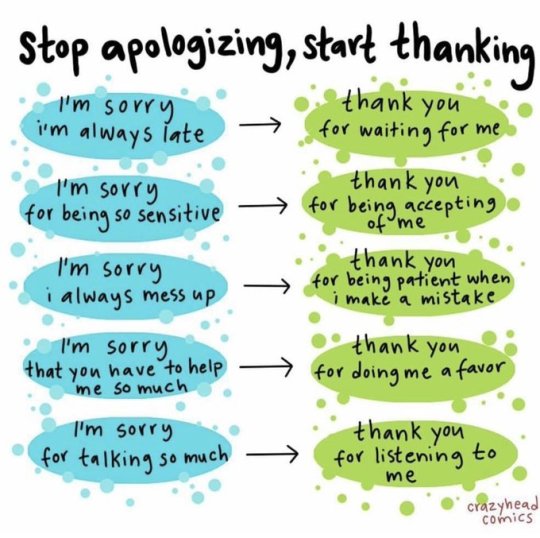
Erasing the #MentalHealth Stigma in the Black community https://t.co/XpYfpbDBTx... Wed. Nov. 18th at 7pm EST Join the discussion https://t.co/CbVvV6uICv Duane Y. McClure, DM, LCMHC, LCPC - IG: @DrDuaneM (https://t.co/1ZvBIWAYer) #blackmentalhealthmatters https://t.co/f7h2PW5L6x
3 notes
·
View notes